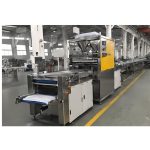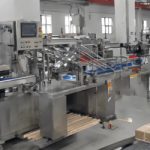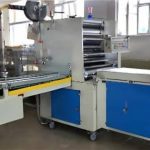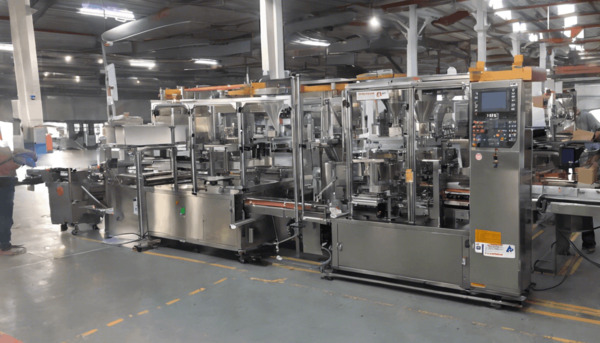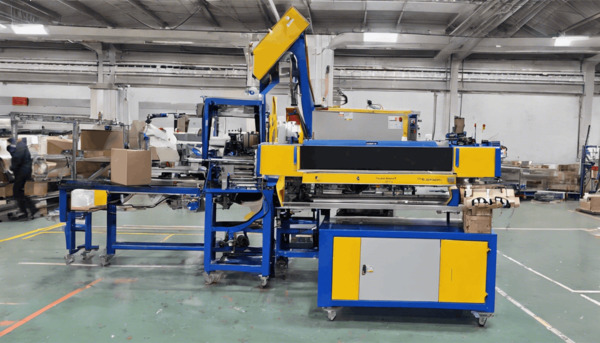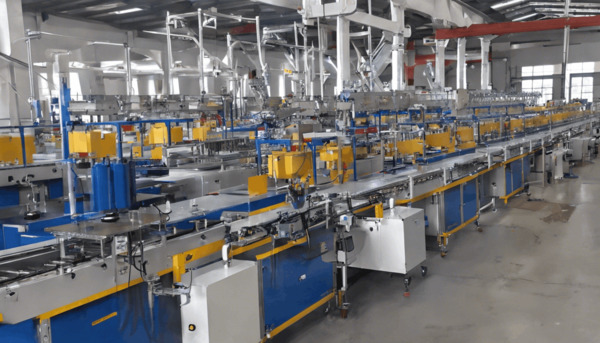
Understanding Carton Makers
A carton maker, also known as a carton forming machine, is a piece of industrial equipment used to manufacture cartons. Cartons are typically made from paperboard and are used for packaging a wide range of products, including food, beverages, pharmaceuticals, and consumer goods. The process of carton making involves several steps, including cutting, folding, gluing, and assembling paperboard into the desired shape and size.
Types of Carton Makers
There are various types of carton makers, each designed to produce specific types of cartons. Some common types include:
1. **Folding Carton Machines**: These machines are used to produce folding cartons, which are typically used for packaging products like cereal, toothpaste, and pharmaceuticals. The machine cuts and scores the paperboard, allowing it to be folded into the desired shape.
2. **Corrugated Carton Machines**: These machines produce corrugated cartons, which are used for shipping and storing products. Corrugated cartons are made from a combination of flat and corrugated paperboard, providing strength and durability.
3. **Rigid Box Machines**: These machines create rigid boxes, often used for luxury packaging. Unlike folding cartons, rigid boxes are not folded but are instead assembled from pre-cut pieces of paperboard.
Components of a Carton Maker
A typical carton maker consists of several key components, each playing a crucial role in the carton manufacturing process:
1. **Feeder**: The feeder is responsible for feeding sheets of paperboard into the machine. It ensures a continuous supply of material for the machine to process.
2. **Die Cutter**: This component cuts the paperboard into the desired shape and size. It uses a die, which is a specialized tool that cuts the paperboard with precision.
3. **Folding Unit**: The folding unit scores and folds the paperboard along pre-defined lines. This is crucial for creating the structure of the carton.
4. **Gluing Unit**: The gluing unit applies adhesive to the paperboard, allowing it to be assembled into a complete carton. The type of adhesive used can vary depending on the material and the application.
5. **Assembly Unit**: This unit assembles the cut, folded, and glued paperboard into a finished carton. It ensures that the carton is properly aligned and secured.
Applications of Carton Makers
Carton makers are used in various industries due to their versatility and efficiency. Some common applications include:
1. **Food and Beverage Industry**: Cartons are widely used for packaging food and beverages, providing protection and preserving freshness. They are used for products like milk, juice, cereal, and snacks.
2. **Pharmaceutical Industry**: Cartons are used to package medicines and healthcare products, ensuring they are protected from contamination and damage.
3. **Consumer Goods**: Many consumer goods, such as electronics, cosmetics, and toys, are packaged in cartons to provide protection and enhance presentation.
Advantages of Using Carton Makers
Carton makers offer several advantages, making them an essential tool in the packaging industry:
1. **Efficiency**: Carton makers can produce large quantities of cartons quickly and consistently, improving productivity and reducing labor costs.
2. **Customization**: These machines can be customized to produce cartons of various shapes, sizes, and designs, catering to the specific needs of different industries.
3. **Quality**: Carton makers ensure high-quality production, with precise cutting, folding, and gluing, resulting in durable and aesthetically pleasing cartons.
4. **Sustainability**: Cartons are often made from recyclable materials, making them an environmentally friendly packaging option.
Challenges in Carton Making
Despite their advantages, carton makers also face several challenges:
1. **Material Costs**: The cost of paperboard and other materials can fluctuate, affecting the overall cost of production.
2. **Machine Maintenance**: Regular maintenance is required to keep carton makers running smoothly, which can be time-consuming and costly.
3. **Technical Expertise**: Operating a carton maker requires skilled personnel who understand the machine’s mechanics and can troubleshoot issues as they arise.
Future Trends in Carton Making
The carton making industry is continuously evolving, with several trends shaping its future:
1. **Automation**: Advances in automation technology are leading to more sophisticated carton makers that require less human intervention and offer greater precision and efficiency.
2. **Sustainability**: There is a growing demand for sustainable packaging solutions, prompting carton makers to explore eco-friendly materials and processes.
3. **Customization and Personalization**: As consumers seek more personalized products, carton makers are developing capabilities to produce customized packaging that meets individual preferences.
